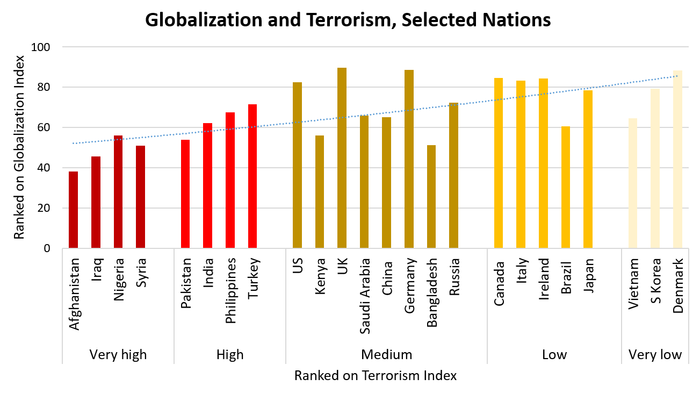Globalization and Extremism: New Internationalist
Globalization and Extremism: New Internationalist
Read the article from the New Internationalist that suggests how rapid economic development and insecurity can lead to discontent, extremism and authoritarian governance.
The KOF Globalisation Index strives to measure the economic, social and political dimensions of globalization, on the rise since the 1970s.
The Global Terrorism Index from the Institute for Economics and Peace strives to analyze the impact of terrorism - and points out the world lacks an internationally-accepted definition for terrorism. The index suggests that South Asia has had the highest impact from terrorism since 2002.

A comparison of the two separate indices on globalization and terrorism suggests that less globalization can be linked with terrorism (Source: KOF Globalisation Index and Global Terrorism Index)